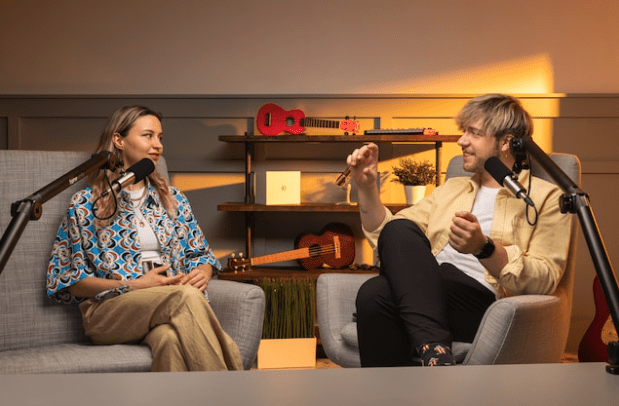Podcasting has taken over the world. From the first podcast that aired back in 2004 to the 5 million currently on-air in 2023, this format of communication only continues to grow in popularity. Part of the appeal lies in its accessibility.
For anyone and everyone who has something to say, it wouldn’t be difficult to start a podcast right now. It can be as simple as recording your thoughts into the mic of your ear pods and hitting publish. And while it may sound tempting to do just that, I’m here to tell you why you shouldn’t.
Perhaps you’ve been sitting cozy in your seat on this media train for a while now, or maybe you’re just starting to peruse tickets. If you find yourself in the latter category, then you have the good fortune of learning from an encyclopedic breadth of lessons courtesy of the many podcasting pioneers who came before you. So, before you pull out your phone and start recording, here’s what you need to know if you really want your podcast to succeed.
The Power of Having a Plan
One thing your podcasting forebears are all sure to tell you is that a plan is essential if you want to gain traction. If you’re new to the media space, then it’s easy to overlook the quantity of hours that go into even the simplest production. For a podcast, there’s everything from conceptualization, research, booking guests, editing, audio design, promotion, artwork, publication, and then promotion.
Think about the possibilities of this media stream, particularly if you’re an entrepreneur trying to grow your business. Podcast audiophiles are always on the hunt for something new and interesting. To be found, you need to be putting out relevant content on a regular basis. That requires thinking ahead, having a plan, and mapping out content that will inspire your audience to hit that subscribe button.
Take Your Studio Space Seriously
The pandemic of 2020 was the one time when it was acceptable to set up a podcast studio in your closet. If you think the production quality of Only Murders in the Building is realistic, recording on a GoPro under the blanket in a room at a theater in the Upper West Side of New York City, then there’s a thing or two to learn about audio.
Find, create, or hire a space that’s designed for audio recording. This purpose-built space will immediately lend a more professional feeling to your podcast, and the designated time will ensure your recording time is sacred and free of interruptions. If you’re not taking yourself seriously, then how can you expect your listeners to take you seriously?
Make Your Platform Interactive
Whether you’re solving murder mysteries in real-time, like our sleuthing team of misfits in Only Murders in the Building, or you’re trying to gain exposure for your business, listener interaction is a huge opportunity. Not only can you learn what they love and loathe, gaining new perspectives, but it’s also how you build loyalty.
Imagine your podcast as a brick-and-mortar building. Do you record an episode and pull down the shades, lock the door, and go home, or do you step outside and talk to your fans? While it might be a fictional podcast within a fictional show, Only Murders is based on things that really happen in the realm of podcasting.
Fan clubs are just one of the marketing perks. They’ve got “The Arconiacs,” who interact with the hosts via social media and by holding signs to reveal their own murder theories. In the real world, podcasts like Crime Junkie and Lady Gang have amassed tens of thousands of followers who promote their favorite pods regularly. Podcasts are a way to create community, and for community to happen, the conversation needs to flow in both directions.
Podcasting isn’t difficult, but building and maintaining a successful production is a more significant time investment than most people realize when they’re just getting started. So take it from the OG pioneers who’ve been there, done that, and lived to tell the tale. Have a good plan in place, create an environment that’ll allow your production to thrive, and let your fans be a part of the conversation. That’s how you build a podcast that lasts.
Spencer Hulse is the Editorial Director at Grit Daily. He is responsible for overseeing other editors and writers, day-to-day operations, and covering breaking news.
Credit: Source link


Comments are closed.